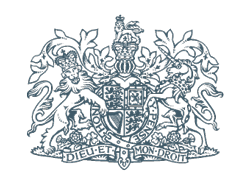Guide to coroner inquests
1. Overview
The Coroner will hold an inquest if the cause of death is still unknown after a post-mortem, or if the:
- cause of death is possibly violent or unnatural
- person died in prison, police custody or another type of state detention
An inquest is a public, fact-finding process to establish who died and where, when and how the death happened. It won’t establish who’s responsible for the death. Most inquests are completed within six months of the death.
The Coroner will open the inquest, confirm the identity of the deceased and set a date for the inquest to be heard. The inquest will then be adjourned.
Gathering evidence
With the Coroner’s guidance, a Coroner’s officer will put together a file of evidence. This might include:
- a statement from a family member about the person and their background
- the post-mortem report, if there is one
- reports from doctors, nurses or police officers
- statements from eyewitnesses
- expert opinion
If you have any information about a death, contact the Coroner’s Office:
- call: 01275 461920
- email: avoncoronersteam@bristol.gov.uk
2. Where the inquest will be held
Inquests are held at the Coroner’s Court:
Old Weston Road, Flax Bourton, Bristol BS48 1UL
The Coroner’s Court is six miles from the centre of Bristol in the village of Flax Bourton. Follow the signs marked ‘Coroner’s Court’ from the A370 Long Ashton Bypass.
Free parking is available.
3. At the inquest
The Coroner’s court is public and anyone can attend, including:
- family and friends of the deceased
- witnesses like, doctors, nurses, police officers or eyewitnesses
- the press
We recommend that children don’t attend as some evidence might be upsetting and difficult to hear.
You should arrive at least 10 minutes before the hearing starts and wait in the waiting room. A court usher will invite you into the court just before the inquest starts. Let us know in advance if you have any special requirements.
Trained Coroner’s Support Service staff will be available before, during and after the inquest to help you.
The dress code is smart casual. Casual clothes such as, shorts are not appropriate. Mobile phones should be switched off. Eating and drinking are not allowed. You must stand when the coroner arrives or leaves.
Most inquests don’t have a jury. However, if the death happened in prison or custody, or if it resulted from an accident at work, there probably will be a jury. If there’s a jury, they will be brought into the court and sworn in.
The Coroner will explain what an inquest is and what it will cover.
Some inquests are “read only”, which means the Coroner will read from the file of evidence and no witnesses will attend. Some inquests will have many witnesses.
Some inquests only last 10 minutes, some last three weeks or more.
4. Witnesses
The Coroner decides who needs to be a witness. This might include:
- family members
- the pathologist who did the post-mortem
- medical staff who treated the deceased
- any witnesses to the death
If you’re called as a witness, you’ll be told in writing. You’re required by law to attend. If you have any problem attending, contact the coroner’s office as soon as possible:
- call: 01275 461920
- email: avoncoronersteam@bristol.gov.uk
If you think a person should be a witness, tell the Coroner’s Office.
Giving evidence
Before the inquest, the Coroner will decide the order of witnesses.
When you’re called into the witness box to give evidence you’ll be sworn in. All witnesses must swear to tell the truth when giving evidence in the Coroner’s Court. This can be done by swearing an oath on a holy book, such as the Bible or Koran or by making a non-religious affirmation. You’ll be asked beforehand which you prefer.
Tell the Coroner’s Office before the inquest if you’ll have trouble giving evidence from the witness box. You might be able to give evidence from your seat.
The Coroner will then take you through your witness statement and ask questions. Other people, such as relatives, might also ask questions. The Coroner will stop them if they ask anything inappropriate.
5. At the end of the inquest
Once all the witnesses have given evidence the Coroner or jury, if there is one, will consider the evidence and return a ‘finding of fact’ and conclusion. This will include details of who the deceased was and when, where and how they died.
Conclusion (previously known as the verdict)
The Coroner can use a “short label” to describe the conclusion, for example:
- accident or misadventure
- alcohol or drug related
- industrial disease
- lawful or unlawful killing
- natural causes
- road traffic collision
- stillbirth
- suicide
Alternatively the Coroner can use a short narrative, giving the facts surrounding the death and explaining the reason for this decision.
If there’s a jury, the Coroner will decide which conclusions are reasonable for the jury to make. The jury will then choose between these conclusions.
Registering the death
When the inquest has finished, a form will be sent to the register office stating the conclusion. The registrar will register the death. You can then request a death certificate from the register office (GOV.UK).
6. Inquest report and statements
If you have an interest in the case, you can request a copy of the inquest report and recording, post-mortem report and witness statements by writing to the Coroner’s Office:
- email: avoncoronersteam@bristol.gov.uk
- write to: Avon Coroner, Coroners Court, Old Weston Road, Flax Bourton, BS48 1UL
You might be charged a fee for items such as, the inquest transcript.
Bear in mind that these records might contain detailed and explicit medical information and details of the death.
